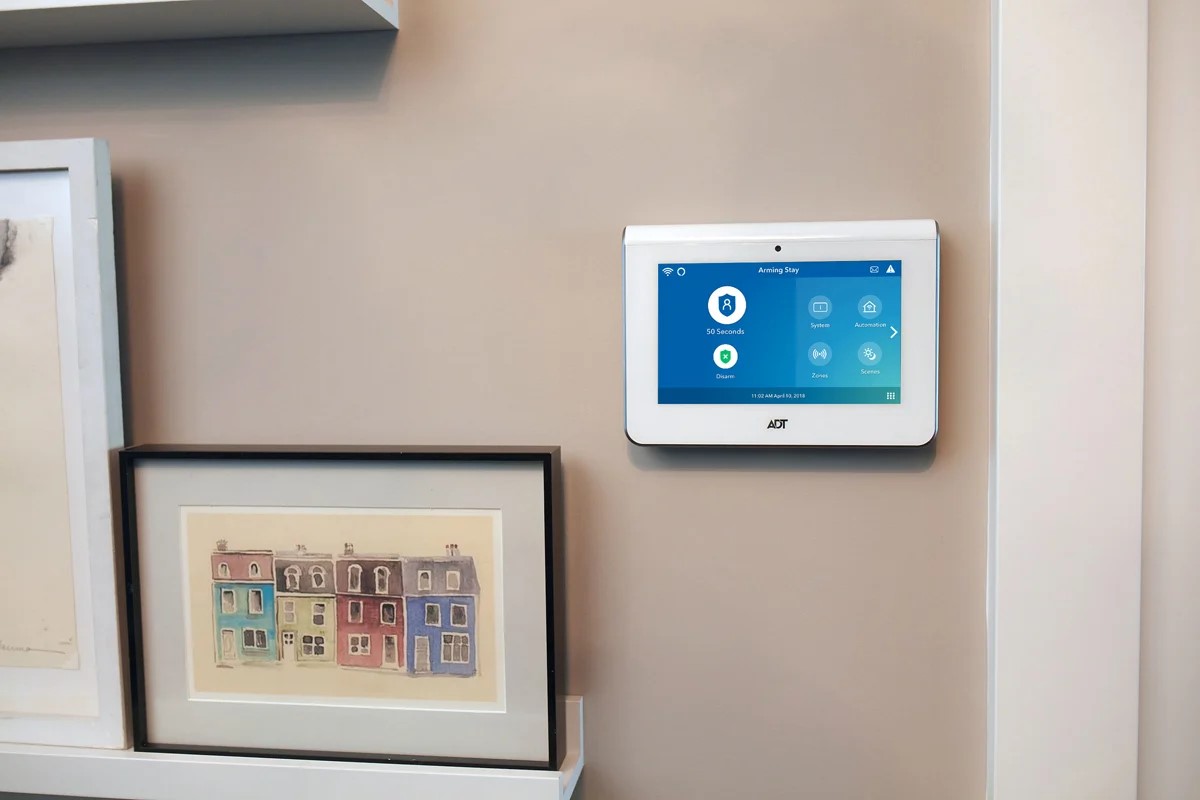Home>Home Security and Surveillance>What Is The Difference Between Selling A Burglar Alarm Business And Selling The Accounts


Home Security and Surveillance
What Is The Difference Between Selling A Burglar Alarm Business And Selling The Accounts
Modified: March 6, 2024
Learn the key distinctions between selling a burglar alarm business and selling its accounts. Our expert insights on home security and surveillance will help guide your decision-making.
(Many of the links in this article redirect to a specific reviewed product. Your purchase of these products through affiliate links helps to generate commission for Storables.com, at no extra cost. Learn more)
Introduction
When it comes to the home security and surveillance industry, there are two different approaches to consider when selling your business or its accounts – selling the entire burglar alarm business or selling just the accounts. Both options have their own set of advantages and considerations, so it’s important to understand the differences between the two before making a decision.
In this article, we will explore the nuances of selling a burglar alarm business versus selling the accounts. We’ll discuss the key differences, the factors to consider, and the pros and cons of each option. Whether you’re a business owner looking to sell or an entrepreneur interested in entering the home security and surveillance industry, this article will provide you with valuable insights to help you make an informed decision.
Key Takeaways:
- Selling the entire burglar alarm business means transferring ownership, assets, and customer contracts. It offers potential financial gain but requires time and effort to find a buyer and manage the transition process.
- Selling just the accounts of a burglar alarm business allows retaining ownership while monetizing recurring revenue. It provides immediate financial benefit and flexibility but may lead to customer dissatisfaction and strain on the remaining operations.
Read more: What Is Local Burglar Alarm?
Selling a Burglar Alarm Business
When selling a burglar alarm business, you are essentially transferring ownership of the entire entity. This includes the physical assets, such as office space, equipment, inventory, and customer contracts. Selling the business allows the buyer to step into an established operation with an existing customer base and infrastructure.
There are several key steps involved when selling a burglar alarm business:
- Valuation: The first step is to determine the value of your business. This involves assessing its financial health, customer base, reputation, and potential for growth.
- Marketing: To attract potential buyers, you will need to market your business. This can be done through online listings, industry publications, and networking within the home security and surveillance industry.
- Negotiation: Once you have interested buyers, negotiations will take place. This includes discussing the terms of the sale, such as the purchase price, payment terms, and any contingencies.
- Due diligence: The buyer will likely conduct due diligence, reviewing financial statements, customer contracts, and other relevant documents to verify the accuracy of the information provided.
- Transition: Lastly, a smooth transition of ownership should occur. This involves transferring customer contracts, training the new owner or employees, and ensuring the continued operation of the business.
When selling a burglar alarm business, you have the potential to capitalize on the value you have built over the years. The buyer benefits from acquiring an established customer base, existing systems and processes, and a recognized brand.
However, it’s important to consider the potential challenges and drawbacks of selling the entire business. This includes the time and effort required to find a buyer, the possibility of disputes during negotiations, and the responsibility of ensuring a successful transition of ownership.
Selling the Accounts
Alternatively, you can choose to sell just the accounts of your burglar alarm business. This means transferring the customer contracts and associated recurring revenue to a buyer, while retaining ownership of the business itself.
Here’s an overview of the process involved in selling the accounts:
- Identification: First, you need to identify which accounts you are willing to sell. This may include residential or commercial customers who have ongoing monitoring or maintenance contracts.
- Valuation: Similar to selling the entire business, you will need to assess the value of the accounts you are selling. This can be based on factors such as the contract terms, recurring revenue, and customer retention rate.
- Marketing: To find potential buyers for the accounts, you can advertise them through industry channels, connect with other security companies, or work with a broker specializing in account sales.
- Negotiation: Once you have interested buyers, you will negotiate the terms of the account sale, including the purchase price, payment terms, and any contingencies.
- Transition: The final step is to facilitate a smooth transition of the accounts to the buyer. This involves transferring customer contracts, ensuring proper communication with customers during the transition, and providing any necessary training or assistance.
Selling the accounts of your burglar alarm business allows you to monetize the recurring revenue stream without giving up ownership of the entire operation. This can be an attractive option if you want to scale down your business, focus on other ventures, or simply extract value from your customer base.
However, it’s important to note that selling the accounts may come with its own set of challenges. This includes the need to build trust with potential buyers, the possibility of losing some customers during the transition, and the potential impact on your brand reputation if the buyer does not provide satisfactory service.
Ultimately, the decision to sell the accounts of your burglar alarm business should be based on your specific goals, circumstances, and preferences. It may be beneficial to seek professional advice from a business broker or legal expert to guide you through the process and ensure a successful sale.
Key Differences
Now that we have explored the process of selling a burglar alarm business versus selling the accounts, let’s look at the key differences between the two options.
Ownership: Selling the entire business means transferring ownership of the entity, including assets, liabilities, and brand. On the other hand, selling the accounts allows you to retain ownership of the business while transferring the customer contracts and recurring revenue.
Financial Impact: Selling the business typically results in a larger financial impact as it involves the sale of all assets, including tangible and intangible assets such as equipment and brand reputation. Selling the accounts involves primarily selling the recurring revenue stream associated with the customer contracts.
Customer Relationships: When selling the business, the buyer acquires all customer relationships, including the trust and rapport built over time. Selling the accounts, however, means the buyer must establish their own relationships with the customers and maintain the level of service expected.
Transition Process: Selling the business involves a more comprehensive transition process, including transferring all contracts, training the new owner or employees, and ensuring the smooth continuity of operations. Selling the accounts typically involves a simpler transition process focused on transferring customer contracts and providing necessary support during the transition.
Time and Effort: Selling the entire business generally requires more time and effort in finding a suitable buyer, negotiating terms, and facilitating a successful transition. Selling the accounts, on the other hand, may be a quicker process as it involves selling a specific subset of the business.
Risk and Responsibility: Selling the business transfers the risk and responsibility associated with the entire operation to the buyer. Selling the accounts, however, still leaves the responsibility of managing the overall business with the seller, while the buyer assumes the risk and responsibility of serving the acquired accounts.
These key differences highlight the distinct considerations when deciding between selling a burglar alarm business or selling the accounts. It’s important to carefully evaluate your goals, financial situation, and long-term plans before making a decision.
Selling a burglar alarm business includes selling the entire company, while selling the accounts involves transferring the monitoring contracts to another company while keeping the business. Consider the long-term implications for your business before making a decision.
Factors to Consider
When deciding whether to sell a burglar alarm business or just the accounts, there are several important factors to consider. Evaluating these factors can help you determine which option aligns best with your goals and circumstances:
- Financial Goals: Consider your financial goals and objectives. Selling the business may result in a larger financial windfall upfront, while selling the accounts allows you to capitalize on the recurring revenue stream without giving up ownership.
- Time and Effort: Assess how much time and effort you are willing to invest in the selling process. Selling the entire business typically requires more time and effort, including finding a buyer, negotiating terms, and facilitating a smooth transition.
- Brand Reputation: Consider the value of your brand reputation and customer relationships. Selling the business transfers these relationships to the buyer, while selling the accounts means the buyer must establish their own relationships with the customers.
- Personal Involvement: Evaluate your willingness to stay involved in the business. Selling the accounts allows you to step back and focus on other ventures while still maintaining ownership, while selling the business signifies a complete exit from the industry.
- Industry Trends: Stay informed about industry trends and market conditions. Assess the demand for full-service security companies versus the demand for customer accounts in your specific market.
- Transition Support: Consider the level of support you are willing to provide during the transition process. Selling the accounts may require less involvement in terms of customer communication and training, while selling the business necessitates a more comprehensive transfer of operations.
- Legal and Tax Implications: Consult with legal and tax professionals to understand the legal and tax implications of each option. Factors such as capital gains taxes, contracts, and liabilities may vary depending on whether you sell the entire business or just the accounts.
By carefully considering these factors, you can make a more informed decision that aligns with your goals and priorities. It may be beneficial to seek advice from business consultants or industry professionals who can provide insights tailored to your specific situation.
Read more: What Is A Burglar Alarm System
Pros and Cons of Selling the Business
When considering whether to sell a burglar alarm business, it’s important to weigh the pros and cons. Here are some advantages and disadvantages to consider:
Pros:
- Financial Gain: Selling the entire business can result in a significant financial gain, especially if you have built a successful and profitable operation.
- Transfer of Responsibility: By selling the business, you transfer the responsibility of managing the operations, employees, and customer base to the buyer.
- Exit Strategy: Selling the business provides an exit strategy for owners who may be looking to retire or pursue other ventures.
- Established Infrastructure: The buyer benefits from an established infrastructure, including office space, equipment, and existing customer contracts.
- Brand Value: The sale of the business includes the transfer of brand value, reputation, and customer relationships to the buyer.
Cons:
- Loss of Control: Selling the business means giving up control and decision-making power over the operations and direction of the company.
- Transition Challenges: The transition process can be complex and challenging, requiring time and effort to ensure a smooth transfer of ownership.
- Loss of Equity: Selling the business means giving up equity and potential future profits that could be generated by retaining ownership.
- Potential Disputes: Negotiating terms of the sale and managing expectations between buyer and seller can sometimes lead to disputes or conflicts.
- Loss of Identity: For founders and entrepreneurs, selling the business may mean letting go of the identity and legacy they have built over the years.
It’s important to carefully consider these pros and cons in light of your specific situation, goals, and personal preferences. A thorough analysis and consultation with professionals can help you make an informed decision regarding the sale of your burglar alarm business.
Pros and Cons of Selling the Accounts
Before deciding to sell just the accounts of your burglar alarm business, it’s important to weigh the pros and cons. Here are some advantages and disadvantages to consider:
Pros:
- Retained Ownership: Selling the accounts allows you to retain ownership of the business while monetizing the recurring revenue generated by the customer contracts.
- Immediate Financial Benefit: Selling the accounts provides an immediate influx of cash from the sale, which can be beneficial for personal or business purposes.
- Reduced Responsibility: By selling the accounts, you transfer the responsibility of managing and servicing those customers to the buyer, reducing your day-to-day operational obligations.
- Focus on Other Ventures: Selling the accounts frees up your time and resources, allowing you to focus on other ventures or areas of interest.
- Flexibility: Selling the accounts gives you the flexibility to continue operating the business in a scaled-down capacity or explore new opportunities in the home security industry.
Cons:
- Loss of Recurring Revenue: Selling the accounts means giving up the recurring revenue generated by those customer contracts, which could impact the financial stability of the business.
- customer Dissatisfaction: The buyer may not provide the same level of service or quality that your customers are accustomed to, potentially leading to customer dissatisfaction and tarnishing your brand reputation.
- Strain on the Business: Selling accounts can create a strain on the remaining operations of the business, potentially requiring adjustments to staffing, resources, and workflows.
- Difficulty Finding Buyers: It may be challenging to find buyers interested in purchasing the accounts, especially if the market is saturated or there is low demand for customer contracts in your specific area.
- Transition Challenges: Transferring the accounts to a new owner requires careful communication with customers to ensure a smooth transition, which can be time-consuming and potentially disruptive.
Consider these pros and cons in the context of your individual situation, business objectives, and long-term goals. It may be helpful to consult with industry experts or business advisors to gain further insights and make an informed decision regarding the sale of the accounts of your burglar alarm business.
Conclusion
Deciding whether to sell a burglar alarm business or just the accounts is a significant decision that requires careful consideration. Both options have their own benefits and challenges, and the choice ultimately depends on your specific goals, financial situation, and long-term plans.
If you choose to sell the entire business, you can benefit from a potential significant financial gain upfront and transfer the responsibility of managing the operations to the buyer. However, you will lose control over the business and may face challenges during the transition process.
On the other hand, selling the accounts allows you to retain ownership of the business while monetizing the recurring revenue generated by customer contracts. This provides immediate financial benefit and frees up your time to focus on other ventures. However, it may involve potential customer dissatisfaction and strain on the remaining operations of your business.
Before making a decision, carefully evaluate factors such as your financial goals, overall involvement, brand reputation, and industry trends. Seek guidance from professionals such as business brokers or legal advisors to ensure a smooth and successful sale.
Remember, there is no one-size-fits-all answer. Your decision should align with your unique circumstances and aspirations. Take the time to assess the pros and cons, weigh the potential risks and rewards, and make a choice that feels right for you and your business.
By considering all the factors and making an informed decision, you can navigate the process of selling a burglar alarm business or its accounts with confidence, and ultimately achieve your desired outcome.
Frequently Asked Questions about What Is The Difference Between Selling A Burglar Alarm Business And Selling The Accounts
Was this page helpful?
At Storables.com, we guarantee accurate and reliable information. Our content, validated by Expert Board Contributors, is crafted following stringent Editorial Policies. We're committed to providing you with well-researched, expert-backed insights for all your informational needs.














